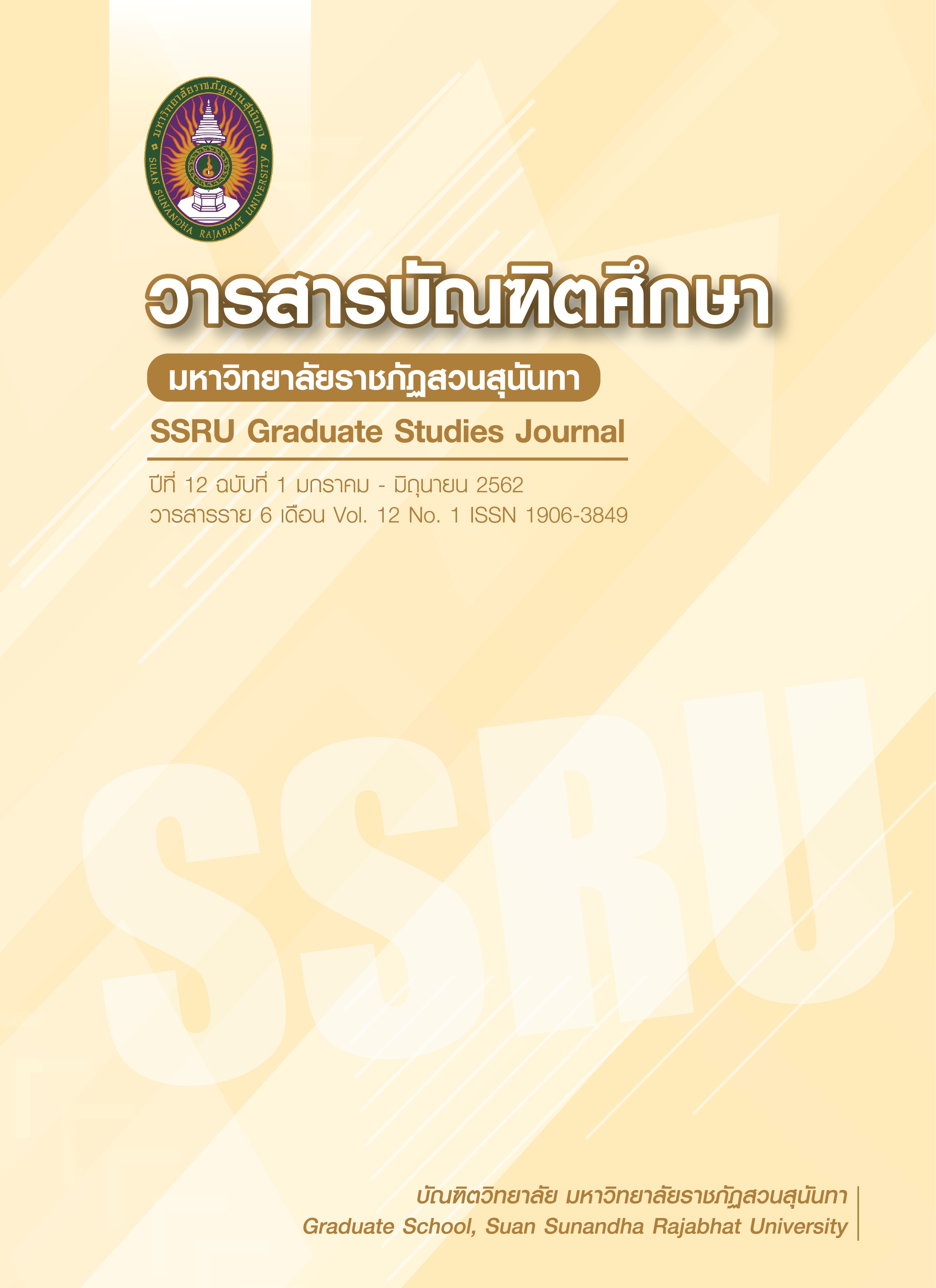Factors of Collaboration with Community Participation Affecting The Achievement of Basic Education School Students in Schools under Samutprakan Primary Educational Service Area Office
Main Article Content
Abstract
The Ministry of Education regards the improvement of the academic achievement of primary school students as a policy that schools should set as high priority. However, it is now known that the overall academic achievement of primary school students in the Samutprakarn Primary Educational Service Area has not been insufficiently satisfied when compared with schools in other educational service areas, where student academic achievement has only been at a moderate level. The objectives of this research were: 1) to investigate the level of school administrators instructional leadership, teacher quality, community participation in education management, and student academic achievement, at the primary school level, in the Samutprakarn Prmary Educational Service Area; and 2) to study the influence of school administrators instructional leadership, teacher quality, and community participation in education management on the academic achievement of primary school students. This research was a quantitative research. The research sample consisted of 359 school administrators, primary school teachers, and school committee members in the Samutprakarn Primary Educational Service Area, obtained by multi-stage sampling. Sample size was calculated based on Yamane’s formula. The data were collected with the use of a questionnaire and analyzed with descriptive statistics and a structural equation model.
Research findings indicated that: 1) overall, the school administrators instructional leadership, teacher quality, community participation in education management, and the academic achievement of students were rated at a high level, while considering each factor, the school administrators instructional leadership, teacher quality, community participation in education management were rated at a high level, but the academic achievement of students was rated at a moderate level; 2) school administration instructional leadership, teacher quality, and community participation in education management had a direct รeducational management had an influence and direct chool administration, the quality of teachers and community participation influence on the academic achievement of the students with the statistical significance of .01. These findings can lead to as the development of improved guidelines to enhance the academic achievement of primary school students in, and outside, of the Samutprakarn Primary Educational Service Area. It is suggested that the major factors that are important in enhancing student academic achievement include the support of teachers in continual improvement by school administrators, that teachers should have an academic background in the subjects that they teach, and, that community organizations support the use of local resources such as learning media.
Article Details
References
สำนักงานเขตพื้นที่การศึกษาประถมศึกษาสมุทรปราการ เขต 1. (2553). รายงานการประเมินคุณภาพการศึกษาระดับชาติ ชั้นประถมศึกษาปีที่ 6 ปีการศึกษา 2555 เขตพื้นที่การศึกษาสมุทรปราการ เขต 1. สมุทรปราการ : ผู้แต่ง.สำนักงานเขตพื้นที่การศึกษาสมุทรปราการ เขต 1.
สำเริง บุญเรืองรัตน์ (2539). การวิจัยและพัฒนาหลักสูตร. กรุงเทพฯ : มหาวิทยาลัยศรีนครินทรวิโรฒ ประสานมิตร.
สัมฤทธิ์ กางเพ็ง. (2551). ปัจจัยทางการบริหารที่มีอิทธิพลต่อประสิทธิผลของโรงเรียน: การพัฒนาและการตรวจสอบความตรงของตัวแบบ. วิทยานิพนธ์ปริญญาศึกษาศาสตร์ ดุษฎีบัณฑิต สาขาวิชาการบริหารการศึกษาบัณฑิตวิทยาลัย, มหาวิทยาลัยขอนแก่น.
Creemers & Scheerens (1989). “Developments in Educational Effectives Research Programme”, International Journal of Educational Research, 21(2): 125 – 139.
Epstein et al. (1997). Involving parents in homework in the middle grades. (Research Bulletin No.18.)
Fraser et at. (1987). “Synthesis of educational productivity research”. International Journal of Educational Research, 11 (2).
Johnson, D.W., Johnson, R.T., and Smith, K.A. (1991). Active learning: Cooperation in the college classroom. Edina, MN: Interaction Book Company.
Wang et al. (1990). “Mycorrhiza mutants of Lotus japonicus define genetically independent steps during symbiotic infection”. Molecular Plant-Microbe Interactions, 11, 933-936.
Walberg. (1984). Families as Partners in Educational Productivity. Phi Delta Kap-pan: in press.

